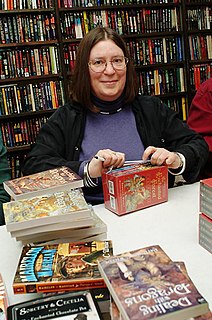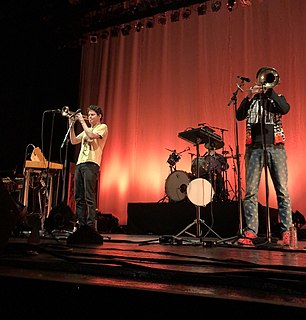A Quote by Jennifer Egan
I write totally spontaneously. I actually write fiction by hand - that always seems to startle people. I think the reason I do that is to bypass the thinking part of me and get to the more unconscious part, which is where all the good ideas seem to be.
Related Quotes
I write my first draft by hand, at least for fiction. For non-fiction, I write happily on a computer, but for fiction I write by hand, because I'm trying to achieve a kind of thoughtless state, or an unconscious instinctive state. I'm not reading what I write when I wrote. It's an unconscious outpouring that's a mess, and it's many, many steps away from anything anyone would want to read. Creating that way seems to generate the most interesting material for me to work with, though.
I write fiction longhand. That's not so much about rejecting technology as being unable to write fiction on a computer for some reason. I don't think I would write it on a typewriter either. I write in a very blind gut instinctive way. It just doesn't feel right. There's a physical connection. And then in nonfiction that's not the case at all. I can't even imagine writing nonfiction by hand.
The reason I wouldn't dare to write a Western is simply because that seems to be so much a part of American culture. Maybe if I want to write a Western enough I should try to overcome that fear, but I'll certainly feel like I'm trespassing. I feel that that is so much a part of American foundation myth, it's part of the myth of America, the American vision of what America is, which people have glorified and then challenged and then vilified.
The good part of writing is where it gets out of your control and turns into something else. You look at it and think "Whoa, where did that come from? That wasn't what I meant to write, but it's more interesting than what I was intending. Which part of my subconscious or my experience did that come from?" Often the answer isn't clear, and often the line between fiction and fact isn't clear, either.
The way that I'm feeling the shift in movie industry is that women are allowed to be part of the development process. So I do feel like things are changing because I'm allowed to option books or write an original screenplay or direct. Those possibilities are really wide open. I think that males still struggle to write for females, which is totally fine because I don't think I could write a really impactful male role because that's not the life that I lived. So we'll just keep shouting and say we need more opportunities for not just women but people that are just different.
One of the things I always underscore when I teach criticism is that young critics, or would be critics, frequently have this illusion that if they write about music they're somehow part of music, or if they write about movies they're part of movies, or of they write about theater they're part of theater, or write about literature. Writing is a part of literature, we belong the species of literature. If you add all the music reviews together that have ever been written, they don't create two notes of music.
The idea that we should write towards the unknown aspects of our experience was totally groundbreaking for me. It gave me the license I needed to try to write outside myself. This attitude has deeply informed my approach to fiction, emboldening me to write characters with voices or situations that are vastly different from my own.





































